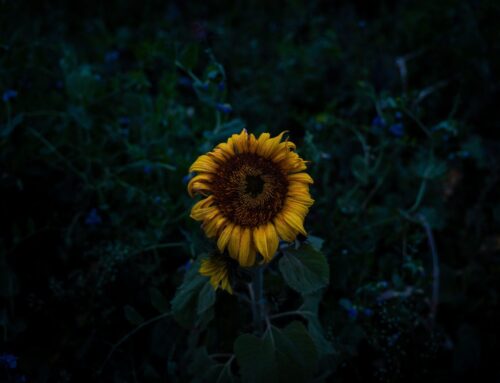Emptying the Prison of the Mind
What a peculiar prison sentence is this thing we call life. Each of us appears to have been born into captivity, a death sentence hanging over us, only the actual date of our ‘execution’ unknown.
We are shackled to these bodies – bodies that are not of our choosing (otherwise, I’d have chosen the Brad Pitt model, right?) – the prison staff composed of the family and friends who await our arrival at the delivery room gate. Through sheer happenstance the prison may be situated on the tony shores of the Hamptons or the sewage-strewn streets of Calcutta.
Escape from this prison does not seem possible. Unless, of course, we opt for self-execution. Gravity keeps us pinned to the planet and even if we were to jettison ourselves into space the absence of air or the sun’s warmth would do us in.
We know not of whence we came nor, for that matter, where we are going, and the capriciousness (if not outright unfairness) of the whole thing can be maddening.
A strange prison sentence indeed.
So it is that amidst our life’s work (e.g. the struggle for survival, for shelter and safety, for food and companionship and the next cool Apple product) a kind of explanation is concocted, one that wholly depends either on imagination or the ‘scripture’ of those who came before us.
Some tell themselves that none of it matters, we are mere aberrations, blips on the radar screen of life, here today, gone tomorrow, utterly irrelevant to a cosmos without rhyme, reason, or rationale. We came from nothingness, we return to it, enjoy the game while you’ve got some playing time.
For others, there are one or more gods of differing temperament who dispatched us to this place and who await our return, no doubt where they will explain the whole thing to us and perhaps even share a good laugh at all the carnage and pain that for so long seemed unnervingly real.
But perhaps there is another understanding, one that, rather than flipping the equation on its head, suggests the equation itself is the problem (or, more precisely, a belief that it is real).
When I lift my finger into the air and stare at it, the question arises, “Where do I end and the universe begins?” The question is both obvious and ludicrous. Obvious in that each of us wanders through life imagining ourselves to be separate and apart from everything else. Ludicrous in that it is impossible for “me” to be separate from the cosmic soup that both hosts me and comprises me. Look at your own finger and see if those same thoughts do not occur to you.
Over the span of 18-24 months, your entire body regenerates itself. Every cell comes and goes. So from a purely physical perspective, where or what is the substance of you? When quantum physicists peer deeply into the fabric of stuff, they can’t find anything. Literally. The deeper they probe into matter the more confounded they become: There are only probabilities of energetic wave/particles occupying a place in space and time. Only…. space is creating itself and time – well, nobody can prove its existence.
The point being that in all of the history of the world and its billions of human inhabitants and their biggest-brain progeny, not one has ever been able to prove that one of us has ever existed. Think about that.
And then think about who it is that is thinking about that if the thinker itself doesn’t exist? What ARE you?
So if there is no prisoner, how can there be a prison? If there is no individual, how can there be an individual who suffers (or triumphs)? How can there be birth or death, a god or gods, meaning or meaninglessness (by whom would such meaning be assessed)?
This has been a strange and often times paradoxical adventure and nearing the crisp age of 50 I know less now than ever. But I see that growing ignorance as a good sign, because the more I forget all that has been jammed into this noggin (by other lost souls) the more that existence itself is allowed once again to shine through and show itself.
As Wei Wu Wei wrote: “In the West at least, we are nearly all busy polishing our mirrors … instead of understanding that neither the polisher nor mirror has ever or could ever exist. As long as we do not perceive the fatuity of a phenomenon telling itself how marvelous it is, we will never come to the knowledge of that which we are when we have understood that, as phenomena, we are not.”
No prisoner. No prison. No-thing. Just beingness, being. If only our minds could truly be blown by such anti-knowledge, eh?





